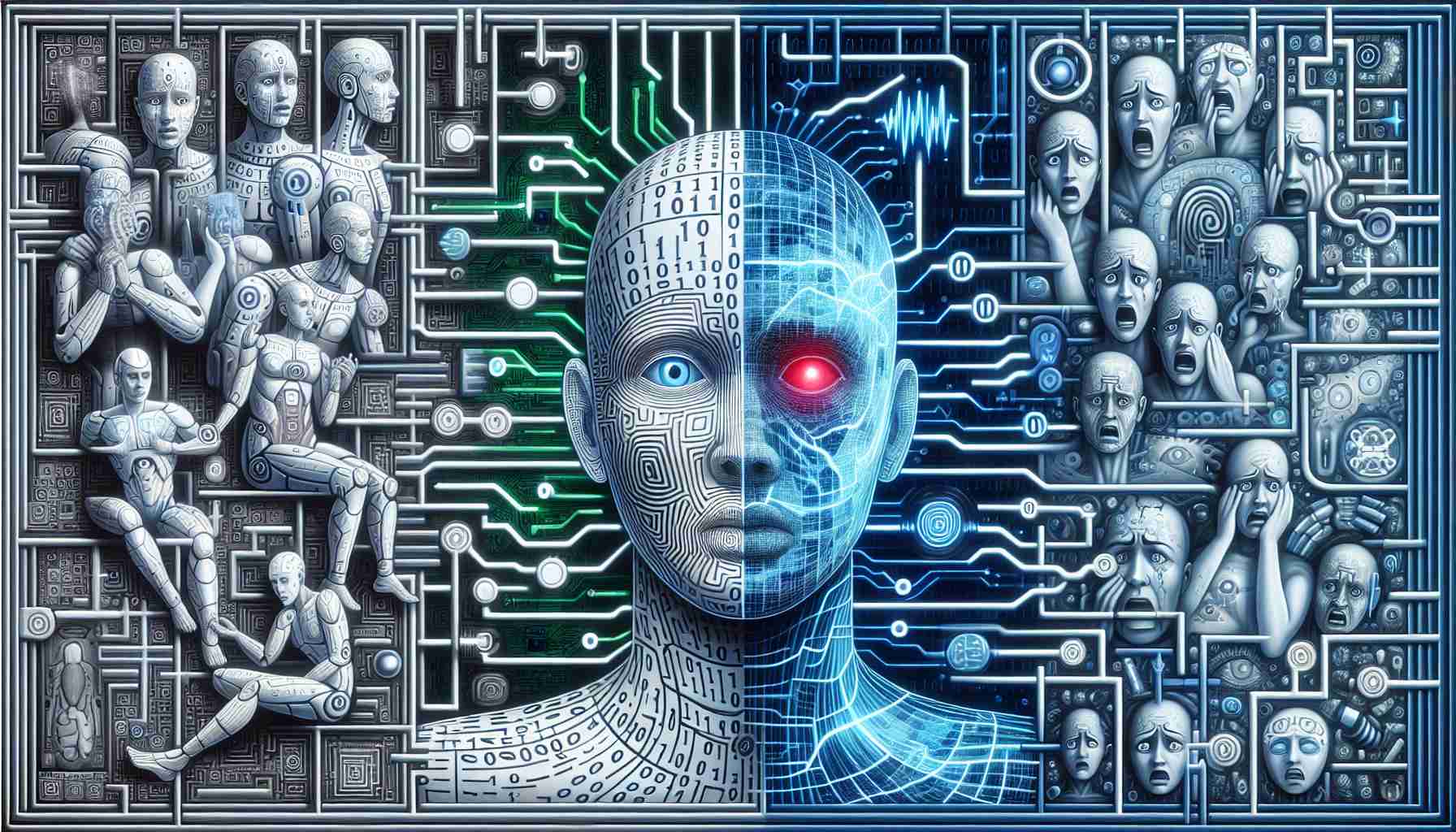As we plunge deeper into the era of technological advancement, our interaction with artificial intelligence (AI) becomes more inevitable and, for many, more unsettling. In the insightful podcast series ‘Polder in de Fik,’ the episode titled “Fear of AI” addresses the public’s growing concern regarding AI’s infiltration into daily life and its potential to disrupt human industries and even lead to a human-AI conflict.
The effects of AI on society, such as job displacement and the threat of mass unemployment, are key worries explored in the episode. It also delves into the paradoxical nature of AI — its ability to enrich our lives while simultaneously sowing seeds of fear about its takeover and other potentially catastrophic impacts.
Distinguished scholars Yarin Eski and Hans Boutellier from VU Amsterdam share their expert perspectives, drawing from sectors like education, healthcare, and banking to illustrate how AI is gradually integrating into every facet of our existence. Their expertise helps to contextualize and clarify the fears surrounding AI’s evolution.
Hans Boutellier’s achievements in the fields of safety, crime, and social order, recognized by his appointment as an Officer in the Order of Orange-Nassau, offer a grounded understanding of AI’s societal implications. Yarin Eski, a prominent figure in public administration and the co-director of the ReSCU lab, brings his wealth of experience from different academic posts to the discussion. Finally, sociologist and radio show host Mirthe van der Drift applies her storytelling skills to engage the audience with personal narratives intertwined with this pressing issue.
The potential for AI to exacerbate human anxiety extends beyond the fear of job displacement and mass unemployment. It also raises concerns about privacy, autonomy, and control, as AI systems can collect a vast amount of data on individuals and potentially be used for surveillance or social manipulation. The trade-off between convenience and privacy is a topic of considerable debate within society.
Another factor contributing to anxiety is the rapid pace of AI development, which challenges our ability to understand, predict, and regulate these technologies. Many people are worried about their ability to keep up with the changes or whether there will be sufficient safeguards in place to prevent misuse.
The ethical considerations of AI are a source of significant contention. Questions arise around the decision-making processes of AI and the opacity of algorithms, often referred to as “black boxes.” These algorithms can have biases built into them, and there’s an ongoing debate about the accountability for their decisions, especially in critical applications such as criminal justice, lending, and healthcare.
The advantages of AI include increased efficiency, cost savings, improved accessibility to services, and the capacity to handle tasks that are dangerous or tedious for humans. AI can also contribute significantly to advances in medical diagnoses, environmental protection, and education.
Conversely, disadvantages incorporate potential ethical lapses, privacy breaches, and the devaluation of human skills. Additionally, there’s the risk of creating societal dependencies on AI systems that may not always function as intended, leading to unanticipated consequences.
A key challenge is finding the balance between leveraging the benefits of AI and mitigating the negative impacts it could have on society. This includes addressing the “digital divide,” ensuring equitable access to technology, and managing the cultural and economic shifts that accompany the integration of AI into our lives.
Controversies include the potential for automating more jobs than it creates, the morality of developing autonomous weapons, and the long-term impact AI may have on human evolution and behavior.
For those wanting to explore these topics further, relevant main domains may include:
– AI4ALL: Focused on increasing diversity and inclusion in AI.
– ACLU: Concerned with issues around civil liberties, including privacy and surveillance.
– American Association for Artificial Intelligence: Professional organization dedicated to advancing the understanding of AI systems.
In conclusion, while AI has the potential to offer significant benefits, it also presents numerous challenges that society must navigate to prevent increased human anxiety and ensure that the technology is developed and used in an ethical and responsible manner.
The source of the article is from the blog lisboatv.pt

